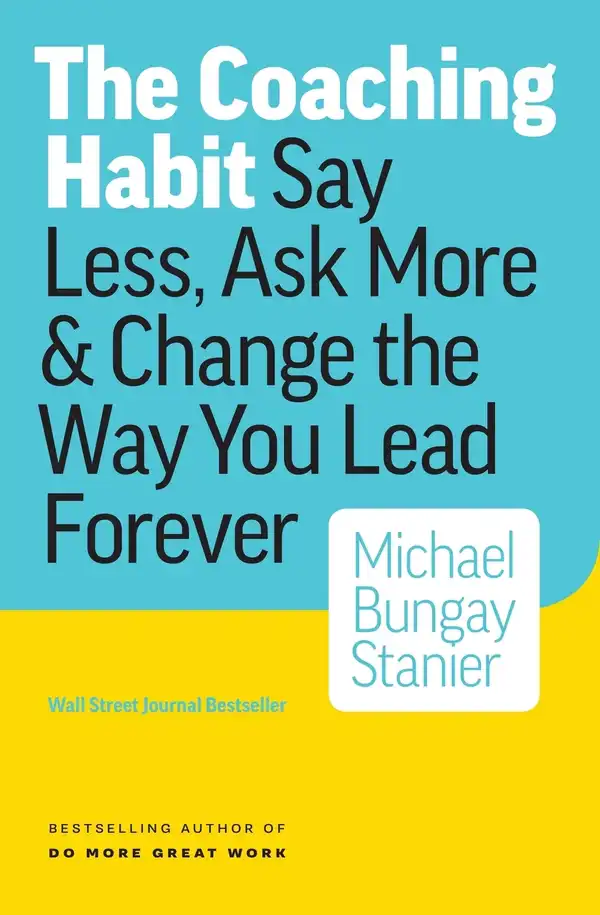Highlights
- An almost fail-safe way to start a chat that quickly turns into a real conversation is the question, “What’s on your mind?”
- Tags: coaching
- Coaching for performance is about addressing and fixing a specific problem or challenge. It’s putting out the fire or building up the fire or banking the fire.
- Tags: management coaching
- Coaching for development is about turning the focus from the issue to the person dealing with the issue, the person who’s managing the fire.
- Tags: coaching management
- Asking the Kickstart Question works as a little pressure-release valve and helps make explicit something that might be unduly influencing the way you work. The question releases the challenge from where it may well be rattling around in a slightly unformed and unclear way that is, unbeknownst to you, narrowing the way you’re seeing the world.
- When you use “And what else?” you’ll get more options and often better options. Better options lead to better decisions. Better decisions lead to greater success.
- Tags: coaching
- “There is nothing else” is a response you should be seeking. It means you’ve reached the end of this line of inquiry.
- Tags: coaching management
- If you can feel the energy going out of the conversation, you know it’s time to move on from this angle. A strong “wrap it up” variation of “And what else?” is “Is there anything else?” That version of “And what else?” invites closure, while still leaving the door open for whatever else needs to be said.
- Tags: management coaching
- Stop offering up advice with a question mark attached. That doesn’t count as asking a question.
- The key thing to know here is that you can coach only the person in front of you. As tempting as it is to talk about a “third point” (most commonly another person, but it can also be a project or a situation), you need to uncover the challenge for the person to whom you’re talking.
- Tags: coaching management
- T is for tribe. The brain is asking, “Are you with me, or are you against me?”
- Tags: coaching management trust
- E is for expectation. The brain is figuring out, “Do I know the future or don’t I?” If what’s going to happen next is clear, the situation feels safe.
- Tags: coaching management
- R is for rank. It’s a relative thing, and it depends not on your formal title but on how power is being played out in the moment.
- A is for autonomy. Dan Pink talks about the importance of this in his excellent book Drive. “Do I get a say or don’t I?” That’s the question the brain is asking as it gauges the degree of autonomy you have in any situation. If you believe you do have a choice, then this environment is more likely to be a place of reward and therefore engagement.
- Tags: management organization-design coaching
- “Suppose that tonight, while you’re sleeping, a miracle happens. When you get up in the morning tomorrow, how will you know that things have suddenly got better?”

Table of contents
Nothing yet!
Links to
Nothing yet!